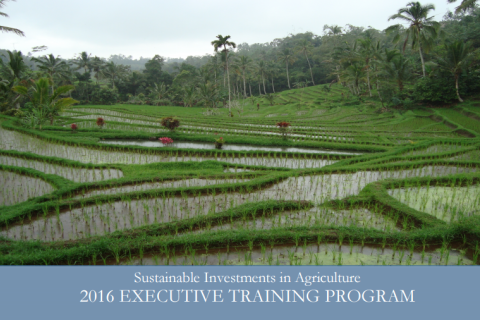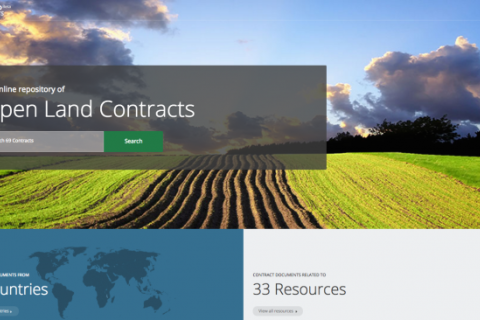
Topics and Regions
Jesse Coleman is a senior legal researcher at the Columbia Center on Sustainable Investment (CCSI). She coordinates the Center’s work at the intersection of human rights and investment law, and works on two other focus areas at the Center: Investment Law & Policy and Land, Agriculture & Food Systems. Jesse leads research, provides technical and advisory support on investment governance, develops and leads trainings, and collaborates with partners to translate research into applied policies and practices. She is also co-editor-in-chief of the Yearbook on International Investment Law & Policy, an annual volume published by Oxford University Press. Jesse is fluent in English and Italian.
Details
Affiliation:
Location
Contributions
Displaying 11 - 18 of 18CCSI Executive Training Program on Sustainable Investments in Agriculture
The Columbia Center on Sustainable Investment (CCSI) is pleased to announce that applications are open for our Executive Training on Sustainable Investments in Agriculture, which will be held at Columbia University from July 12-21, 2017.
DRC to disclose large-scale agricultural contracts with support from CCSI
Democratic Republic of Congo to disclose large-scale agricultural contracts
In partnership with the Columbia Center on Sustainable Investment, documents will be available via a new online repository
CCSI calls for disclosure of land tenure risks in submission to SEC
Tenure-related disputes increase financial risks for companies in land-dependent sectors. The “land tenure risks” that companies confront, either through direct acquisition of land or through their supply chains, are thus of great relevance for informed voting and investment decisions. Given the importance of understanding these risks, the Columbia Center on Sustainable Investment (CCSI) has sent a submission to the U.S. Securities and Exchange Commission (SEC) to provide input into how land tenure risks could be addressed through disclosure requirements for public companies.
Employment from Mining and Agricultural Investments: How Much Myth, How Much Reality?
Employment creation is often seen as a key benefit of investment in natural resources. However, this benefit sometimes falls short: job estimates may be inflated, governmental policies may fail to maximize employment generation, and, in some cases, investments may lead to net livelihood losses.
CCSI Executive Training Program on Sustainable Investments in Agriculture
The Columbia Center on Sustainable Investment (CCSI) is pleased to announce that applications are open for our Executive Training on Sustainable Investments in Agriculture, which will be held at Columbia University from July 6-15, 2016.
Executive Training on Sustainable Investments in Agriculture Returns to Columbia University
Increased investment in agriculture is critical. In a world confronting anticipated increases in food demand arising from a growing world population and changing diets, as well as potential decreases in food supply due to climatic changes and water scarcity, agricultural investment will prove crucial to addressing food security needs in the future. In addition, increased agricultural investment can help accelerate sustainable development in some countries, potentially bringing capital, jobs, and other benefits.
Uncloaking the Secrecy Behind Large-scale Land Deals
Large-scale investments in agriculture and forestry have far-reaching implications for the lives of affected individuals and communities. They are also an integral part of efforts by national governments to implement the Sustainable Development Goals (SDGs) and improve the governance of land resources. Despite their significance, these “land deals” and the contracts that govern them are often cloaked in secrecy, removed from relevant spheres of public scrutiny and debate.







